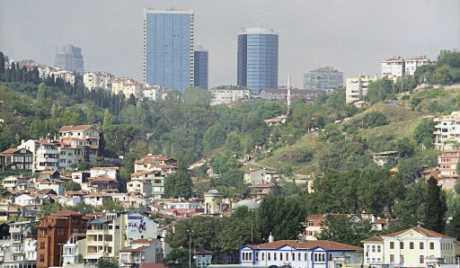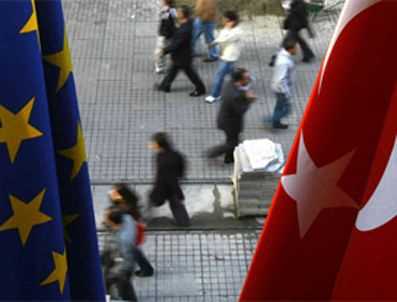By Andrew Rettman
BRUSSELS – Turkey says future visa-free travel will work out well because Turks no longer want to live in the EU.

Istanbul mall – the city is relatively rich. But in rural areas, around 10 percent of people live in poverty (Photo: maistora)
Its European affairs minister Egemen Bagis told EUobserver on Friday (22 June) that Turks these days travel to EU capitals “to spend [money]” in shops and hotels.
“In the past, when Turks were asked do you want to live in Europe, 80 percent would say Yes. Now, 85 percent say No. Turkish citizens feel there is more hope in Turkey, better job opportunities,” he said.
He noted that in 2010, 27,000 Turks went to live in Germany, but 35,000 German citizens moved to Turkey.
He added that “many” of the 5.5 million Turks who live in the EU are considering going to Turkey to seek a better life for themselves and their children.
Bagis spoke after EU countries earlier in the week agreed plans for visa-free travel by 2014 or 2015.
His words are backed up by economic data, to an extent.
While the eurozone stumbles from crisis to deeper crisis, Turkey’s GDP per capita is galloping upward.
In the Ankara and Istanbul regions it is already on par with Greece, former Communist EU countries and parts of Spain and the UK.
Peering over the border, the crisis is eating away at Athens – three four-star hotels in the central museum district closed last year because visible street crime scared off guests.
Turkey is not just Istanbul and Ankara, however – in rural areas, around 10 percent of people live on the equivalent of less than $5 a day.
In return for the visa deal, Turkey is to implement a “readmission” pact – extra measures for stopping migrants from as far afield as China or Pakistan sneaking into the EU.
Bagis said Turkey will create a 50,000-man-strong civilian border police, “humane” detention centres and “new fences.”
Turkey currently intercepts 70,000 people a year trying to get into Greece or Bulgaria. The number “could easily double or triple” once the new measures are in place, he said.
Bagis noted that 30,000 Syrian refugees are being housed in eight camps in southeast Turkey. But Turkish soldiers and gendarmes are making sure they stay put and that no weapons get in.
The EU visa deal will also see Turkey sign an “operational agreement” with the EU’s joint police body, Europol.
A report by British MPs last year said Turkish-based organised crime groups are a growing threat to EU security on heroin and cocaine smuggling and human trafficking.
They said lack of intelligence-sharing, such as personal data on suspects, helps the gangs make hay.
via EUobserver.com / Enlargement / Turks do not want to live in the EU any more.





